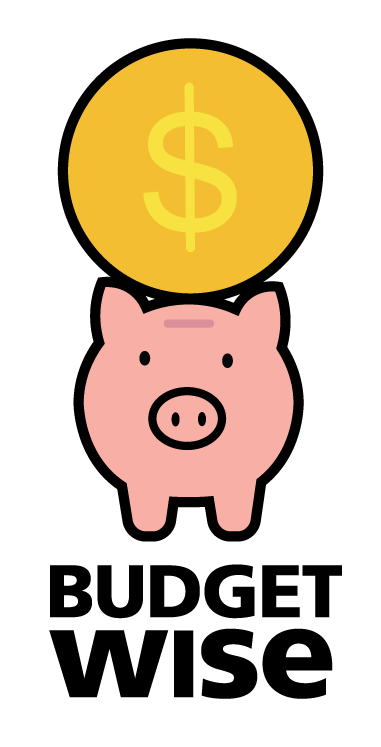For most people, working toward financial security is a daunting task. Maintaining a job and earning a paycheck is a great start, but it’s how you treat your paycheck that ultimately determines your bottom line.
Develop healthy spending habits, invest in savings plans and make the most of your money by making it work for you.
Write Down Your Goals
Taking the initial step is often the hardest part of tackling a new project, especially if your to-do list feels like it’s never-ending. You don’t have to plan out your entire life. However, it’s important to have an idea of your short- and long-term aspirations.
Create a Budget that Supports Your Goals
Develop a weekly, monthly and yearly plan to make sure your budget defines and supports your goals. For example, you will want to set aside a certain amount of money in your budget if you plan on buying a car or a home in five years. The 50-20-30 rule is one way to create a simple budget.
Automate Your Savings
Money saved is worth more than money earned. One of the easiest ways to meet your goals is to set aside a portion of your paycheck automatically through direct deposit. By doing this, it removes the temptation to spend and takes any lack of discipline out of the picture.
Use Sub-Savings Accounts
Placing savings funds into multiple accounts can set you up to save money down the line.
Pay Off Your Debt
In a perfect world, we would all graduate college without debt. Even after paying off student loans, many people continue to struggle to pay down credit card debt. Don’t live a life burdened by debt. Instead, create a payment plan that fits your financial situation.
Leverage Good Debt
Debt is not always bad. Taking on good debt like a mortgage or starting a small business helps to increase your net worth and has lasting value. With the right investments, your debt can become a source of income in the future. Debt is generally considered bad when you are putting money towards something that is depreciating in value.
Review Financial Statements
Erroneous charges happen. Monitoring all transactions is an important step to making wise financial decisions.
Identify Useless Purchases
It’s no secret that we all should be more mindful of what we buy and why. Reducing wasteful spending is the core of restructuring your savings plan. It’s important to identify the areas of spending to trim so you can start sending more of your earnings into an interest-bearing savings account.
Create an Emergency Fund
Life is full of surprises and most people don’t have a ton of cash lying around for when unexpected expenses occur. Creating an emergency fund makes it easier to stick to your budget and reach your financial goals, even with surprise costs. Over time, you can plan towards building a more robust emergency fund with three to six months’ worth of expenses saved.
Start a Retirement Account
Saving goes a long way, especially for your retirement. The earlier you put money in an account, the more you can maximize the compound interest. One of the easiest ways to start saving is if your employer offers you a 401(k) plan. If a 401(k) isn’t available through your job, consider starting an IRA instead.

Invest in a Roth IRA
A Roth IRA is a great way to save for retirement and growing your account tax-free.
Leverage Coupons and Promo Deals
Most people fail to make the most of the resources available around them. One way is to take advantage of coupons an discounts as often as possible.
Regular Maintenance Goes a Long Way
Neglecting home or car maintenance can lead to costly repairs. Taking the time to follow your car’s maintenance schedule and paying a little up front can reduce the risk of encountering more costly major issues down the road.
The Best Things in Life Are Free
Plan in advance to spend less on activities like date nights or going out with friends. There are countless ways to save money by bringing a little creativity into the mix. Catching a free concert in the park or going for bike ride are just a couple of ways to spend time together that won’t cost you a dime.
Dining In
Planning meals at home a week in advance will not only help you save a lot of money on restaurant meals and takeout, it’s also an opportunity to refine your cooking skills. That’s a win-win.
Negotiating
Negotiate whenever the opportunity presents itself. Ask about how you can lower medical bills, insurance or your internet bill. If there’s nothing to lose, why not try to save some extra cash to boost your savings?
Invest in Yourself
Learn a new language, pick up a new skill or turn your hobby into a part-time business. Continuing to better yourself opens the door for new, exciting and potentially lucrative opportunities.
How do you make the most of your money? Add your tips in the comments.
Learn how AAA Financial Services can help you reach your money goals.
2 Thoughts on “17 Ways to Make the Most of Your Money”
Leave A Comment
Comments are subject to moderation and may or may not be published at the editor’s discretion. Only comments that are relevant to the article and add value to the Your AAA community will be considered. Comments may be edited for clarity and length.
















Lo más recomendable es destinar por lo menos un 10% de los ingresos mensuales del hogar para el fondo. En el caso de tener sueldo fijo, lo ideal es fijar una meta financiera mensual y que sea permanente; para ello es importante la disciplina. Este monto no debe ser negociable.
Make a few bucks every month on ‘recycling’ gently used clothing on Poshmark. It’s an easy, great way to earn extra cash & not overload landfills. Plus, the young generation loves retro clothing!